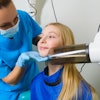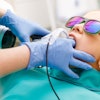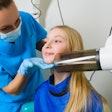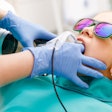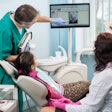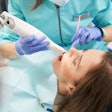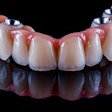
A report released this week by the Texas State Auditor's Office (SAO) takes the Texas State Board of Dental Examiners to task for failing to adequately regulate dental licenses and keep the public informed of complaints against dental professionals.
"Inaccurate, incomplete, and inconsistent data in the agency's automated systems continues to weaken its ability to appropriately regulate licenses and to report accurate licensee information to the public," the report states. "The agency does not have adequate controls to prevent or detect errors and inconsistencies within its automated systems. Improvements are also needed in the controls over system access and changes made to automated systems."
The dental board attributes the reporting problems to its computer system, said Charles Wetherbee, interim general counsel for the agency. The board currently uses five automated systems to track information, each requiring separate, manual input of data.
As a result, the state auditor's report notes, 19 licensed dentists who had disciplinary actions filed against them as recorded in the board's enforcement database are not flagged as having disciplinary actions in the board's license verification database, and 17 of the 19 licenses were not flagged with disciplinary actions in the board's licensing database. Other issues include inconsistencies between the multiple databases, lack of verification of the information in the databases, and lack of appropriate controls over certain automated systems, according to the auditor's office.
"We have had a computer system that is not really capable of handling everything that is required in the auditing process," Wetherbee told DrBicuspid.com. "The good news is, thanks to the state legislature, we are getting a new system that will allow us to keep them happy."
That system, which is expected to cost more than $600,000 to purchase and install, should be up and running by the third quarter of next year, according to the dental board.
Past issues unresolved
The state auditor's office routinely conducts "performance measure" audits every four to six months on all state agencies and had previously reported issues of unreliable and inaccurate data in the dental board's system in June 2002 and August 2005. After the 2005 audit, the dental board reportedly spent $118,000 to implement a new enforcement system to address prior audit recommendations, according to the SAO. That system became active in September 2007, but the report states that "it is not fully functional or reliable and a number of weaknesses continue to exist" -- an issue the dental board blames on the system developer, according to the SAO.
"Given the difficulties the agency has had in the past in designing, implementing, and maintaining automated systems, it will be imperative that the agency use a systematic process for installing, customizing, testing, and implementing the new system to ensure that the existing problems do not occur in the new system," the SAO recommends in the report.
"The agency respects and acknowledges the findings of the SAO and will work to implement the recommendations as appropriate," said Sherri Sanders Meek, executive director of the dental board, in a statement. "While we regret the limitations of our current system, we look forward to the purchase and implementation of the new system, which will give us one comprehensive database."
This most recent SAO audit of the dental board is not related to an independent review of the board's disciplinary records conducted last month by the Austin American-Statesman, Wetherbee said. Among other things, that study found that the dental board was "less likely to take disciplinary action, slower to act, and far less likely to impose the most severe sanction, loss of a license, than the state medical board," according to the American-Statesman.
Copyright © 2009 DrBicuspid.com
